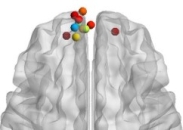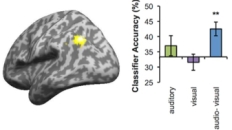
| 
| 
| 
|
Research Interests
 Our research investigates the cognitive and brain mechanisms of human memory, focusing particularly on the subjective experience of remembering and how we use mental experiences to make sense of the world.
Our research investigates the cognitive and brain mechanisms of human memory, focusing particularly on the subjective experience of remembering and how we use mental experiences to make sense of the world.
This work involves inter-relating cognitive hypotheses with evidence from functional neuroimaging of healthy volunteers and from examining the effects of neurological and psychiatric disorders, and normal aging, on memory abilities.
We then work to realise the impact of our research by translating the findings into training interventions that can help older adults and others to apply effective encoding and retrieval strategies in everyday life to enhance independence and wellbeing.
Research in the laboratory uses a number of methods, including behavioural measures, computational modelling, functional and structural neuroimaging (fMRI/sMRI), electrophysiology (EEG/MEG), and brain stimulation (TMS/tDCS).
 |
Anterior prefrontal cortex activity during studies of reality monitoring |
One topic of interest is the interaction between anterior prefrontal cortex and other regions within the frontal lobes, and how these areas are involved in the strategic control of recollection. Anterior prefrontal cortex appears to be key for making decisions about our memories, such as distinguishing real experiences from events we may have imagined or been told about by someone else (termed 'reality monitoring'). Recent findings include the observation that structural variability in an anterior prefrontal cortex brain fold called the paracingulate sulcus might underlie individual differences in reality monitoring that are seen in the general population, and might explain the hallucinations often associated with conditions such as schizophrenia. [See recent review of this work in Trends in Cognitive Sciences].
 |
Angular gyrus is involved in integrating multimodal memory features |
A further major focus is whether these and other brain regions play a necessary role in memory. For example, we have recently been investigating the human parietal lobe, which is commonly activated during neuroimaging studies of memory but which lesion studies indicate may not be critical for accurate recollection to occur. Our hypothesis to explain this conundrum is that the parietal lobe plays a role in the subjective experience of remembering, integrating multimodal event features within a first-person perspective and contributing to the richness and precision of memories, and thus one's confidence in what one is remembering. [See recent review of this work in Annual Review of Psychology].
See full list of publications.

 /
/